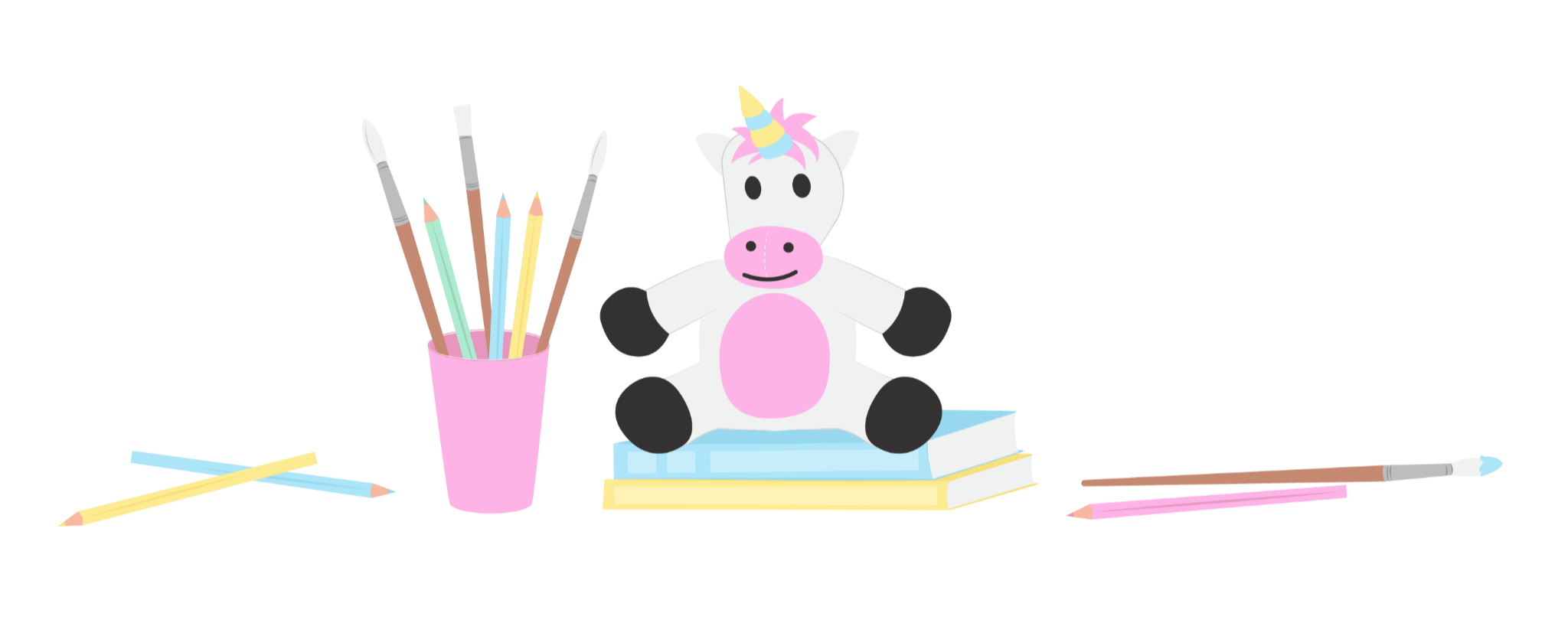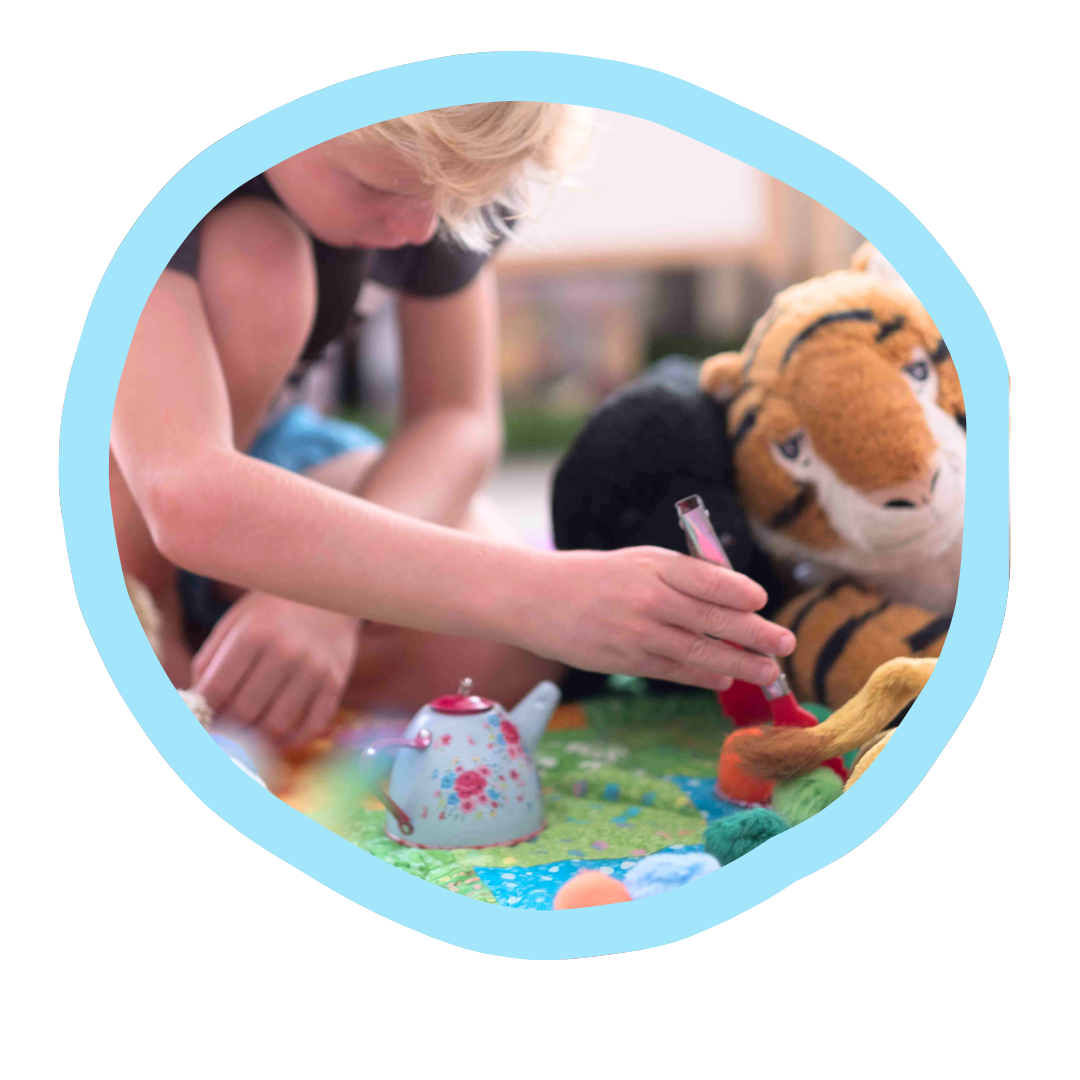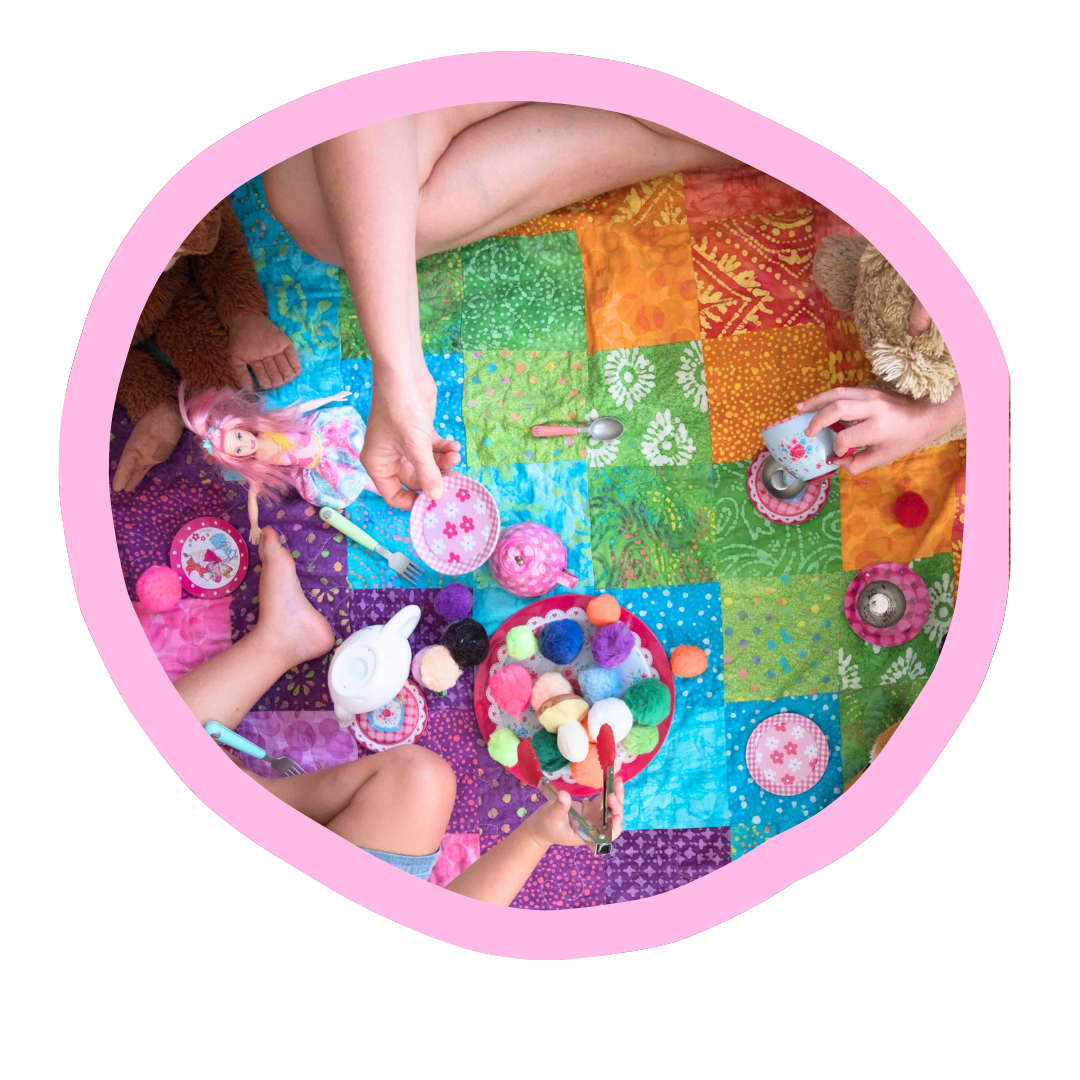Play Therapy with Amy Cox
Welcome to Play Squad® Child and Family Psychotherapy, where play is more than 'just fun'—it’s a powerful tool for healing, feeling, growth, emotional expression, and self actualisation.
This page will guide you through what Play Therapy is, who it’s best suited for, and the types of Play Therapy services available at Play Squad®. You’ll also learn what to expect from the Play Therapy process and how it can support your child’s emotional and behavioural development.
💡 Click on the images below to navigate to those sections!

What is Play Therapy?
Play Therapy is an evidence-based and developmentally appropriate form of psychotherapy designed specifically for children. A Masters-Qualified Play Therapist is highly trained in child development (including developmental neuroscience), play development, and mental health, and works one-on-one with children in a purposefully designed therapeutic playroom.
Play Therapy is the recommended psychological intervention for children aged 3–10, supporting them with a range of social, behavioural and emotional challenges and experiences.
Who is Play Therapy suitable for?
Play Therapy is a safe and empowering place where children can explore, connect, and grow into their most authentic selves. Best suited for children aged 3-10, it helps them navigate a wide range of social and emotional experiences and challenges, providing a space where they can process their world, express themselves freely, and build confidence in their unique strengths.
It supports children through different things that shape their daily lives, such as:
Big life changes
Diagnosed / Suspected ADHD
Autism
Low Confidence & Self-Esteem
Big Feelings & Challenging Behaviours
Separation Anxiety
Challenges with Friendships
Anxiety, Fears & Worries
Difficulties engaging in play
As an ADHD Certified Specialist, I am passionate about supporting neurodivergent children, especially those with ADHD. Whenever possible, I take a family-centred approach, working alongside caregivers to ensure children feel understood and supported.

How does Play Therapy Help?
In a society that often views play as unproductive, it may feel counterintuitive to turn to Play Therapy—but here's the thing: play isn’t 'just' fun. Renowned paediatrician and psychoanalyst Donald Winnicott described play as "the birthplace of personhood", a transitional space where children navigate both their internal emotional experiences and the external realities of the world around them.
Neuroscientists describe play as an ancestral tool for living—as natural and essential as the instinct to avoid fearful or dangerous situations. Unlike reading or writing, which we're motivated to learn through external influences, play is an internal drive that all children possess. This deep, instinctual, 'bottom-up' need is one of the reasons why Play Therapy is the recommended psychological intervention for children, over top-down, talk-based support. Play Therapy supports a child's ability to navigate life's natural ups and downs, working out how the world AROUND them fits with the world WITHIN them.

Key Messages in Children's Play
Because children naturally express themselves through play, it becomes a powerful process and context for processing emotions, communicating experiences, and developing new ways to navigate their world.
Those new to Play Therapy may think that play is simply the method or the process used in therapy, but play itself is the change agent. It doesn’t just support therapeutic work—it drives emotional healing and personal growth.
In the playroom, toys act as a child’s words, providing a concrete way to explore thoughts and feelings they may not yet have the ability to verbalise. Play becomes the bridge—what children can’t (yet) make sense of in reality, they work through in their play. What they can’t control in the outside world, they can take charge of in the playroom.
Here are key insights that emerge through children's play in Play Therapy:

Play reveals what a child has experienced.

Play shows how a child feels about those experiences.

Play communicates what a child needs in their world.

Play reveals how a child sees themselves & their place in the world.
The Holistic Powers of Play
At the heart of Play Therapy is a relationship built on deep trust, attunement, and professional expertise. A trained Play Therapist skillfully responds to a child’s play, fostering emotional growth, resilience, and self-expression. Within this responsive connection, children feel empowered to solve problems, experiment with new ways of thinking and relating, and build confidence in their own abilities.
The magic of Play Therapy lies in this process—change doesn’t happen to children; it happens within them. Within therapeutic play, they experience being, belonging, and becoming — key elements of the Early Years Learning Framework—as they build confidence, resilience, and self-awareness in a way that feels natural, safe, and empowering.
This model was developed as part of my Masters Research Thesis, building on the work of of The Therapeutic Powers of Play (Schaefer & Drewes, 2014) and the Early Years Learning Framework (AGDE, 2022). At its heart, the child remains the focus—growing holistically across multiple domains, with therapeutic play as both the process and context for this transformation:


Types of Play Therapy
Every human is individual, with a one-of-a-kind personality that's been shaped by a lifetime of unique experiences. I offer a tailored therapeutic approach for children and families to ensure that each individual receives the support that truly works for their unique journey. No one-sized-fits-all cookie cutter approaches here.
The following Play Therapy services are available at Play SquadⓇ both in person and online*:

Directive Play Therapy
Some children benefit from more structured, directive play therapy. In this method, the therapist actively guides the play therapy session, providing specific toys, materials, and activities tailored to address the child's unique needs and goals.

Non-Directive Play Therapy
This child-led approach leverages the power of play to help children make positive changes in their behaviour, supported by a trusting relationship with the therapist.

Filial Play Therapy
Parents are a child’s best and most important teacher. Filial Play Therapy is designed to help you find and build on the strengths that you already have so that you can feel even more confident and connected as a family. This approach has since been extensively researched and proven to be highly effective!

The Process
The goal of Play Therapy is not to 'fix' a child or solve a set of problems. Play Therapy supports a child's ability to navigate life's natural ups and downs, working out how the world AROUND them fits with the world WITHIN them.
For this reason, all interventions are different - because all people are different! The total duration of the Play Therapy process varies, but most children typically have around 20 sessions.
More frequently asked questions (FAQs) about this here.
Here's an overview of what to expect from the Play Therapy Process:
#1: Getting Started
#2: Laying the Foundation
#3: Where the Magic Happens
#4: Reflect & Transition
Your role in the process
I want to acknowledge the Whadjuk people of the Noongar Nation, the original caretakers of the land where I'm lucky enough to live, work and play: Perth, Western Australia. To those who have walked before us, those who walk with us today, and the leaders of tomorrow: your deep connection to this land is truly inspiring. I'm here to listen, learn, and grow; acknowledging the unceded sovereignty and the enduring strength of Australia's oldest cultures. I am committed to taking real steps towards understanding, respect, and helping heal the traumas of the past.


